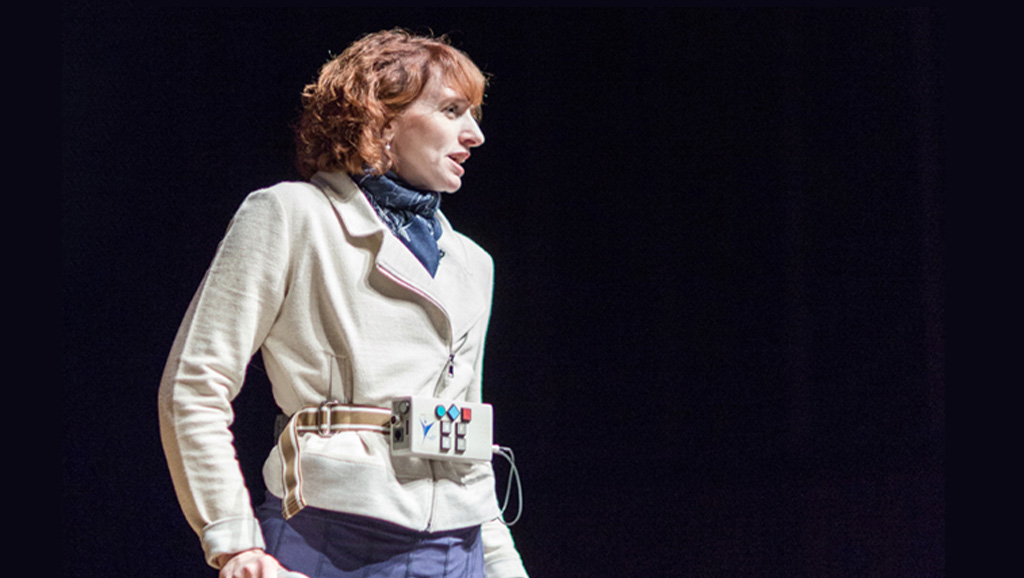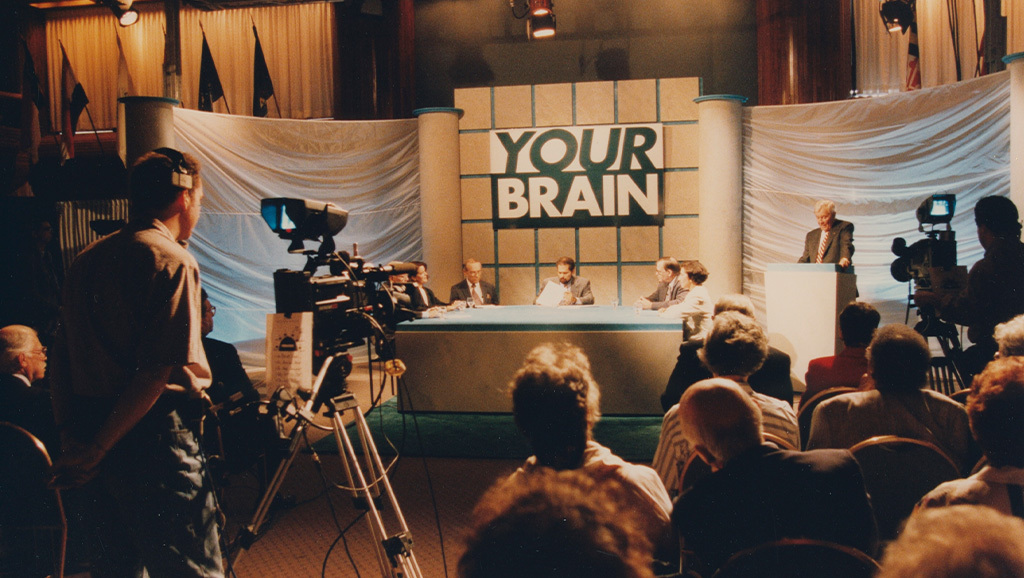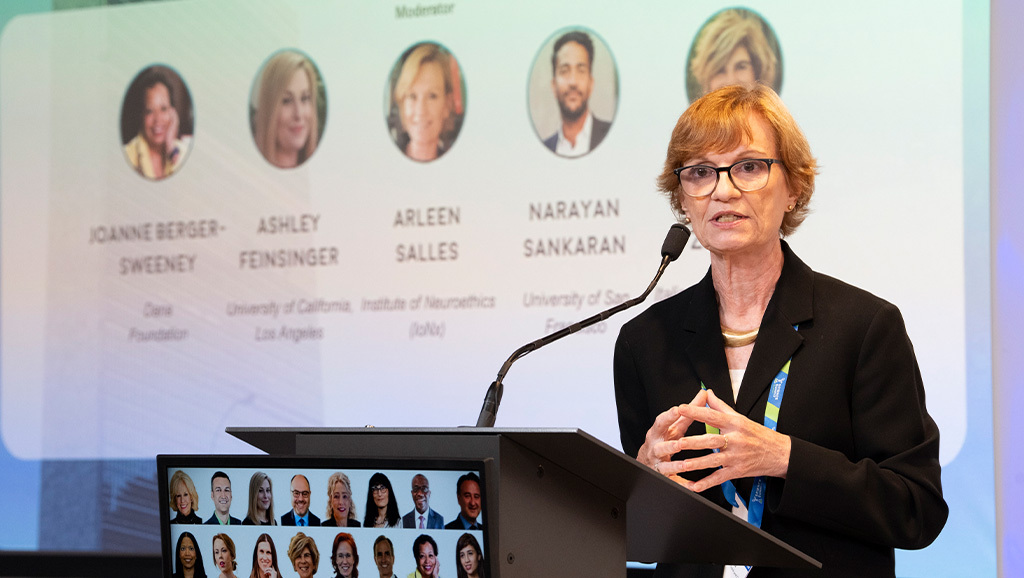News & Insights
Pioneering Change in Neurotechnology Development with Jen French


Neurotechnology is at the forefront of scientific innovation, with implantable brain-computer interfaces (iBCIs) offering groundbreaking potential for individuals with neurological conditions. However, the journey from conceptualization to implementation is fraught with challenges, including accessibility, safety, and systemic hurdles, says Jen French.


For French, the journey into neurotechnology began after a snowboarding accident in 1998 that resulted in a life-changing spinal cord injury. “That’s when I got thrown into this world of disability,” she says.
French has since become a champion of the field—founding the nonprofit Neurotech Network to advocate for neurotechnology accessibility; speaking at events for the National Institutes of Health, National Academy of Sciences, and TEDx; serving as vice president of the North American Spinal Cord Injury Consortium; and receiving the 2024 Craig H. Neilsen Visionary Prize for her groundbreaking work.
In the latest episode of NeuroSociety Stories, French joins Dana Foundation President Caroline Montojo in New York City for a conversation highlighting the transformative potential of implantable brain-computer interfaces, while sharing her story as an athlete, advocate, and innovator.
Reflecting on her early encounters with the field, French describes how her background in consumer technology helped her navigate complex rehabilitation methods, such as electrical stimulation.
“After my injury, when I’m told that there’s no cure for spinal cord injury, I started to look at the alternative treatments, and I didn’t understand the biologics and some of the chemical treatments. Those were foreign to me and, in some ways, scary,” she tells Montojo. Neurotechnology has the potential to bridge gaps for those with neurological conditions—but only if the technology is accessible and aligned with the needs of its users, she cautions.
“This is an emerging technology and field, and how do we help marshal that? How do we help people living with neurological conditions connect to the technology that is becoming available as potential treatments for them? We’re at a point where we have investors coming in, but there are still systemic challenges that need to be solved.”
Together with neurologist Leigh Hochberg, M.D., Ph.D., and pathologist Joe Lennerz, M.D., Ph.D., French is pioneering an initiative called the Implantable Brain-Computer Interface Collaborative Community, or iBCI-CC, created with funding under the Dana Foundation’s Frontiers program. “The iBCI-CC is really at the intersection of neuroscience and society,” says French.
“We are at a pivotal moment for implantable brain-computer interfaces, moving from first-in-human and safety studies to larger studies and making the devices available on the market. The industry is ready to marshal this technology, but they face challenges that cannot be solved by industry or research alone.”
The Collaborative Community represents a critical step toward creating this unified ecosystem that advances cutting-edge neurotechnology while ensuring its equitable distribution to those who stand to benefit the most. By involving patients, care partners, and advocacy organizations early in the research and development process, developers can better understand how their technologies might impact people’s lives on social, emotional, and practical levels.
Since its launch, the iBCI-CC has made significant strides in creating a united platform for advancing implantable brain-computer interfaces. With the first charter meeting taking place one year ago last January, the initiative is young but already has nearly 350 members.
“We’ve made incredible progress with the support of funders,” says French. “For example, initiatives like the BRAIN Initiative and foundations like the Dana Foundation have helped us learn a lot about the human brain and nervous system and build prototypes for solving complex neurological conditions. But the neurotech industry is young and fragile.”
In the interview, when she is asked about the future of neurotechnology, French expresses optimism. She notes that while the field has made remarkable progress, thanks to public and private investments, there is still much work to be done. The iBCI-CC’s work is just beginning, with French and her team’s bold vision for the future of neurotechnology, where it can be a reality for all who need it.
To learn more about Jen French and her work in neurotechnology, watch the full NeuroSociety Stories episode here or on the Dana Foundation’s YouTube.


